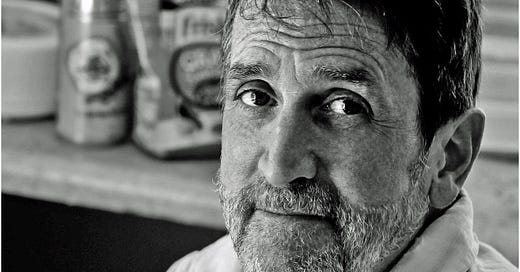Mississippi Native: Lee Durkee
"It’s been my experience that people are intrigued by you if you’re from Mississippi. I like how they squint at you, like you’re a different species capable of god knows what."
What does it mean to call Mississippi home? Why do people choose to leave or live in this weird, wonderful, and sometimes infuriating place? Today we hear from essayist and fiction writer Lee Durkee, whose first memoir, Stalking Shakespeare, will be published this month.
Where are you from?
Hattiesburg. Graduated Hattiesburg High in 1980. My mom’s people were McLain (Greene County, MS). My dad’s were upstate New York. My parents met in Honolulu, where my mom was a secretary for the Navy, and my dad recruited students from the outer islands for the University of Hawaii. We traded paradise for Hattiesburg when I three. So basically I peaked at two.
Why did you leave Mississippi? Where did you go?
I left Mississippi after dropping out of both PRC (Pearl River Junior College, as it was then called) and USM. Eventually I attended college in Arkansas, grad school in Syracuse, and ended up married-divorced and raising a son in frozen Vermont for eighteen years, eighteen winters. I still have PTSD. It’s a lovely state, Vermont, but the winters last forever and will pummel you.
Why did you return to Mississippi?
By accident. I was desperate to escape my 18th Vermont winter, and curious what Mississippi was like these days, so I decided to spend a month in Oxford, and never left. That’s why it’s called the velvet ditch, I guess. I wallowed in that ditch twelve years, even lived inside a ravine while living in the ditch until I got evicted from my hovel eight months ago and moved here to Taylor.

Keep reading with a 7-day free trial
Subscribe to Rooted Magazine to keep reading this post and get 7 days of free access to the full post archives.




